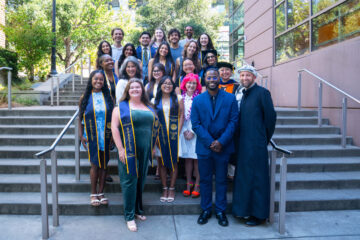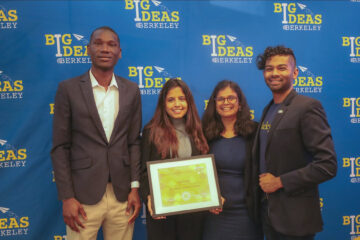RescueSight: Student Founders Aid Disaster Relief with Visionary Tech
With its revolutionary platform that equips first responders with comprehensive real-time insights during disaster scenarios, it’s no wonder that RescueSight was voted the “Most Innovative Technology” at Collider Cup XV. Co-founders and best friends Alper Gel (‘26 Electrical Engineering & Computer Sciences / Bioengineering) and Charlie McDonald (‘26 Applied Math Read more…

